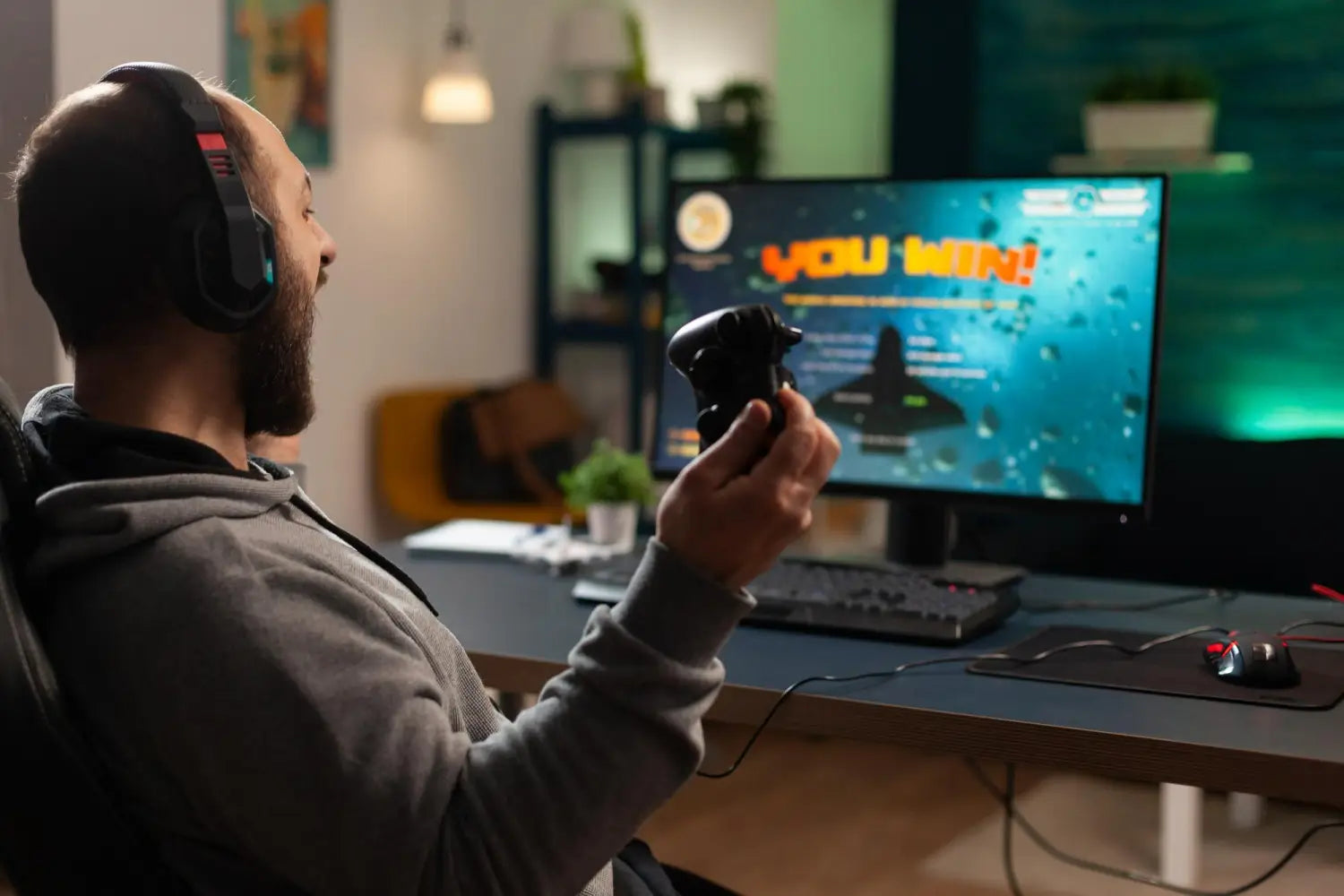Stuttering during an online match is the last thing you need, especially when every second counts and one moment of lag can hang between victory and defeat. There could be a few issues for this, so we’ve collated some of the more common ones that you might be able to fix yourself at home before seeking expert advice.
These are all tips we have found are common solutions to network issues. If you’re still unsure or think your network issues require more in-depth troubleshooting, please contact a technician directly for assistance and advice. For expert assistance on software issues from our technical team we now offer a support package to all our customers.
Network issues

If you have a poor or unstable internet connection, it can result in lag and stuttering during online gameplay. High latency, packet loss, or insufficient bandwidth can disrupt the smooth transmission of game data between your computer and the game server.
Please note that some of these issues may be down to problems outside of your control, such as a problem on the side of your ISP.
Solutions
Check your internet connection
Ensure that you have a stable and reliable internet connection. Use a speed testing tool to check your internet speed and latency. If you have a slow or unstable connection, consider contacting your internet service provider (ISP) for assistance or upgrading your plan if necessary.
Use a wired connection
Instead of relying on Wi-Fi, connect your gaming device directly to your router using an Ethernet cable. Wired connections generally provide a more stable and lower-latency connection compared to wireless connections, which can help reduce game latency.
Prioritize your game traffic
Some routers have Quality of Service (QoS) settings that allow you to prioritize specific types of network traffic. Enable QoS and configure it to prioritize your game's traffic, ensuring it gets a higher priority over other applications or devices on the network.
Check for firmware updates
Make sure your router's firmware is up to date. Manufacturers often release firmware updates that can improve performance, stability, and compatibility. Check the manufacturer's website or the router's administration interface for any available updates.
Disable bandwidth-hungry applications/features
Some routers have features like QoS, media prioritization, or bandwidth sharing that can cause conflicts or degrade gaming performance. Disable these features if they are not necessary or causing issues.
Optimize router settings
Adjust the channel settings of your Wi-Fi network to minimize interference from other nearby Wi-Fi networks. Additionally, ensure that your router is placed in a central location and not obstructed by walls or other objects that may weaken the signal.
Use a virtual private network (VPN)
In some cases, using a VPN can help improve network stability and reduce latency by bypassing certain network congestion points or optimizing routing. However, not all VPNs may be suitable for gaming, so research and choose a reliable gaming-friendly VPN if you decide to go this route.
Limit bandwidth usage
Close or pause bandwidth-consuming applications or downloads running on your network while gaming. Streaming services, file transfers, or large downloads can consume significant bandwidth and contribute to network congestion, resulting in higher latency. By reducing the amount of data being transmitted, you can help prioritize game-related network traffic.
Set up port forwarding
If your game requires specific ports to be open for optimal connectivity, set up port forwarding on your router. This ensures that the game data can pass through the router without unnecessary delays or restrictions.
Connect to less congested servers
If the game allows you to choose from multiple server locations, try connecting to servers that are less crowded or experiencing lower congestion. Servers with fewer players or servers located geographically closer to your location can potentially offer better network performance and lower latency.
Contact your ISP
If you consistently experience network congestion and latency issues, consider contacting your internet service provider (ISP). They may be able to provide insights, recommendations, or potential solutions to address the congestion issues in your area. Upgrading your internet plan to a higher bandwidth or switching to a different ISP with better network performance may also be options to explore.
Time your gaming sessions
Network congestion can vary depending on the time of day. Consider gaming during off-peak hours when internet traffic is generally lower. This can help minimize network congestion and reduce latency during your gaming sessions.
Server performance
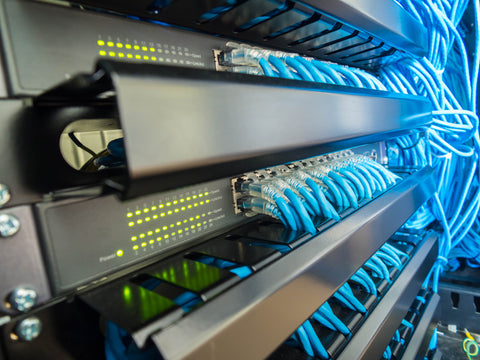
The performance of the game server itself can impact online gameplay. If the server is experiencing high loads or technical issues, it may struggle to deliver a consistent and smooth gaming experience, leading to stuttering or lag.
Solutions
Choose servers with lower latency
If the game offers multiple server locations, select servers that are geographically closer to your location. Reduced physical distance between you and the server can help minimize latency and improve your gaming experience.
Contact the game's support team
If you consistently experience latency issues on specific game servers, reach out to the game's support team. They may be able to provide insights into the server performance and offer solutions or recommendations for alternative servers that are performing better.
Optimize in-game settings
Adjusting certain in-game settings can help reduce the impact of server performance on latency. For example, decreasing the number of players visible on your screen or adjusting the graphics settings to reduce the amount of data being sent from the server to your computer can help mitigate latency issues.
Play during off-peak hours
Server performance can be affected by the number of players connecting to it. Playing during off-peak hours when there is less congestion on the server can potentially improve latency and overall performance.
Monitor server status
Keep an eye on official forums, social media channels, or websites dedicated to monitoring game server statuses. This can provide information on known server issues, maintenance schedules, or updates from the game's development team. Being aware of any ongoing server problems can help you understand if the latency you're experiencing is temporary or related to server performance.
Consider private or dedicated servers
In some cases, games offer the option to host or rent private or dedicated servers. These servers can provide more control over the server environment and potentially offer better performance and lower latency compared to public servers. However, this option may require additional cost and technical knowledge to set up and maintain.
Patience and persistence
Server performance issues can sometimes take time to resolve as game developers work to optimize and address server-related problems. It's important to remain patient and persistent in reporting issues to the game's support team and monitoring official communications for updates on server performance improvements.
Hardware limitations
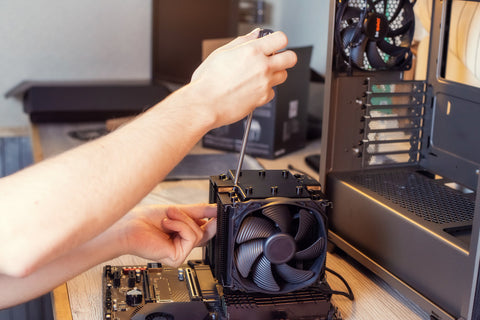
Insufficient hardware resources on either your computer or the server can cause stuttering during online play. For example, if your computer doesn't meet the game's system requirements or if the server is overloaded, it can result in performance issues.
Solutions
Upgrade your hardware
If your computer's hardware is not meeting the minimum requirements for the game, consider upgrading components such as the CPU, graphics card, or RAM. More powerful hardware can handle game processing tasks more efficiently, reducing latency and improving overall performance.
Optimize graphics settings
Adjusting the graphics settings within the game can help alleviate the strain on your hardware. Lowering the resolution, disabling certain visual effects, or reducing the level of detail can reduce the workload on your hardware, resulting in improved performance and lower latency.
Close unnecessary background applications
Background applications and processes can consume system resources and impact game performance. Close any unnecessary applications, especially those that are resource-intensive, to free up system resources and potentially reduce latency.
Monitor and manage system temperatures
Overheating can cause hardware components to throttle performance, leading to increased latency. Ensure that your computer's cooling system is working efficiently, clean any dust buildup, and consider using additional cooling solutions such as fans or cooling pads to maintain optimal temperatures.
Update device drivers
Outdated or incompatible device drivers can lead to performance issues, including increased latency. Keep your graphics card, motherboard, and other hardware drivers up to date by regularly checking for updates from the manufacturer's website or using driver update software.
Optimize system resources
Close unnecessary processes and applications running in the background to free up system resources. This includes disabling unnecessary startup programs, adjusting power settings to prioritize performance over power saving, and managing background services.
Consider gaming on dedicated gaming hardware
If you consistently experience hardware limitations that impact your gaming experience, you might consider investing in dedicated gaming hardware. Gaming consoles or gaming-specific laptops and desktops are designed with optimized hardware configurations to deliver better gaming performance, including lower latency.
Background processes
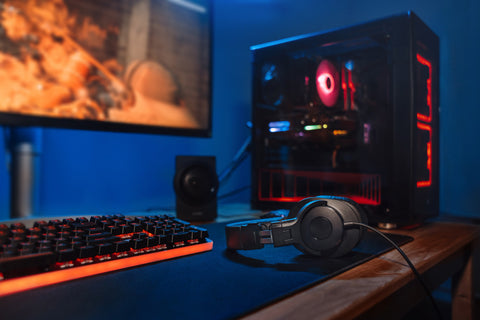
Other applications or processes running on your computer, especially those consuming a significant amount of system resources (CPU, memory, etc.), can affect gaming performance. Background downloads, software updates, or resource-intensive tasks can lead to stuttering during gameplay.
Solutions
Close unnecessary applications
Before launching your game, close any unnecessary applications running in the background. Look for programs that consume significant system resources, such as web browsers, media players, or file-sharing software. Right-click on their respective icons in the taskbar or use the Task Manager (Ctrl + Shift + Esc) to close them.
Disable startup programs
Some applications launch automatically when you start your computer, running in the background and consuming system resources. Disable unnecessary startup programs to prevent them from running and potentially causing game latency. You can manage startup programs in the Task Manager or by accessing the Startup tab in the System Configuration utility (type "msconfig" in the Run dialog).
Use a game mode or dedicated gaming software
Some operating systems or gaming peripherals offer game mode or gaming software that can optimize system performance by disabling background processes or allocating resources specifically for gaming. Explore your system settings or the software accompanying your gaming peripherals to see if such options are available.
Adjust power settings
Ensure that your computer is operating in high-performance mode or a mode optimized for gaming. This can be done by accessing the Power Options in the Control Panel (Windows) or System Preferences (macOS). High-performance power settings prioritize system performance and minimize power-saving features that could potentially impact game performance.
Disable background services
Some background services or processes may not be directly related to specific applications but can still consume system resources. You can review and disable unnecessary services through the Services tab in the Task Manager or by using specialized tools designed to manage system services.
Manage antivirus and security software
Antivirus and security software often run in the background to protect your system. However, they can occasionally impact gaming performance. Adjust the settings of your security software to minimize their impact during gaming sessions. Some antivirus programs have a gaming mode or silent mode that reduces resource usage while you're playing.
Update your drivers and software
Ensure that your device drivers, including graphics card drivers, are up to date. Outdated drivers can cause compatibility issues and impact performance. Regularly check the manufacturer's website for driver updates or utilize driver update software to keep your drivers current.
Optimize system resources
If you're running resource-intensive applications, such as video editing or 3D rendering software, consider closing them or reducing their priority to free up system resources for gaming. Task Manager allows you to adjust the priority of running processes under the Details or Processes tab.
Software conflicts
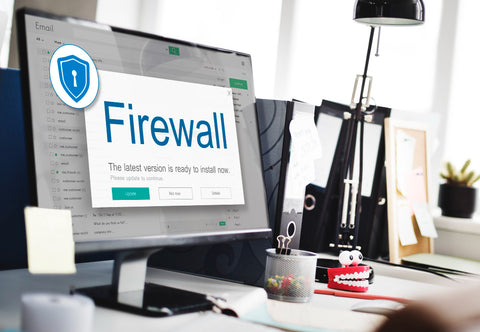
Conflicts between the game and other software, such as antivirus programs, firewalls, or network optimization tools, can cause performance issues during online play. These conflicts can interfere with the game's network connections or resource allocation, leading to stuttering or lag.
Solutions
Update your software
Ensure that your operating system, game client, and game itself are up to date. Developers often release updates to address software conflicts and improve performance. Check for updates regularly and install them to ensure you have the latest versions.
Disable background applications
Close or disable unnecessary applications running in the background, especially those that might conflict with the game. Applications such as antivirus software, system optimizers, or overlays (e.g., Discord overlay) can potentially interfere with the game's performance. Temporarily disabling or closing them can help identify if they are causing conflicts.
Check compatibility
Verify that your hardware meets the game's minimum system requirements. Incompatibilities between the game and your hardware or drivers can lead to software conflicts and increased latency. If your hardware falls short, consider upgrading or adjusting the game settings to reduce the strain on your system.
Adjust in-game settings
Experiment with different graphics settings within the game. Lowering the resolution, disabling certain visual effects, or reducing the level of detail can help reduce the strain on your hardware and minimize potential software conflicts. Finding the right balance between visual quality and performance can improve latency.
Update drivers
Outdated or incompatible device drivers, especially graphics card drivers, can cause software conflicts and impact game performance. Regularly update your drivers by visiting the manufacturer's website or using driver update software. This ensures you have the latest drivers that are optimized for performance and compatibility.
Disable unnecessary overlays and features
Some applications or features, such as Steam overlay, GeForce Experience overlay, or Xbox Game Bar, can introduce conflicts with the game. Try disabling these overlays or features to see if it resolves the latency issues.
Verify game files
Most game clients provide an option to verify the integrity of game files. This process checks for any corrupted or missing files and repairs them if necessary. Verifying game files can help resolve conflicts and improve game performance.
Clean boot your system
Perform a clean boot to start your computer with a minimal set of startup programs and services. This helps identify if any third-party applications or services are causing conflicts with the game. If the latency issue is resolved during a clean boot, you can selectively enable programs and services to identify the specific software causing the conflict.
Contact game support or forums
If you've tried the above solutions and are still experiencing software conflicts causing latency, reach out to the game's support team or visit their official forums. They may be aware of specific conflicts or have additional troubleshooting steps to resolve the issue.
Geographic distance

The physical distance between your location and the game server can introduce latency, which can contribute to stuttering during online gameplay. Players farther away from the server may experience more noticeable delays and performance issues.
Solutions
Use a gaming VPN with server locations
A virtual private network (VPN) can help reduce latency by optimizing your connection. Look for a gaming VPN that offers server locations closer to the game servers you are connecting to. This can help reduce the physical distance data needs to travel, resulting in lower latency.
Opt for game servers with lower latency
When playing online games, choose servers that are geographically closer to your location. Many games offer multiple server options, so select servers that minimize the distance between you and the game server. This can help reduce latency caused by geographical distance.
Upgrade your internet connection
Consider upgrading your internet service to a plan with higher bandwidth and lower latency. A faster and more stable internet connection can help mitigate the effects of geographical distance on latency. Contact your internet service provider (ISP) to explore available options.
Reduce network congestion
Network congestion can exacerbate latency issues. Close bandwidth-intensive applications and downloads running on your network while gaming. By minimizing data traffic on your network, you can help reduce congestion and improve latency.
Use a content delivery network (CDN)
Some games employ content delivery networks to distribute game data across multiple servers globally. CDNs store game assets in various locations, reducing the distance data needs to travel. This can help lower latency and improve game performance, particularly for larger game files.
Participate in local gaming communities
Engage with local gaming communities or forums to find players and servers in your region. Connecting with players closer to you can result in lower latency during online gameplay, as the data has a shorter distance to travel.
Optimize your network settings
Adjust network settings for optimal performance. Enable Quality of Service (QoS) settings on your router to prioritize game traffic over other types of data. Additionally, ensure that your router's firmware is up to date to benefit from any performance improvements or bug fixes.
We hope we've covered some common issues that can interfere with your game latency.
Or perhaps you're considering an upgrade to make that gaming experience lightning fast.





